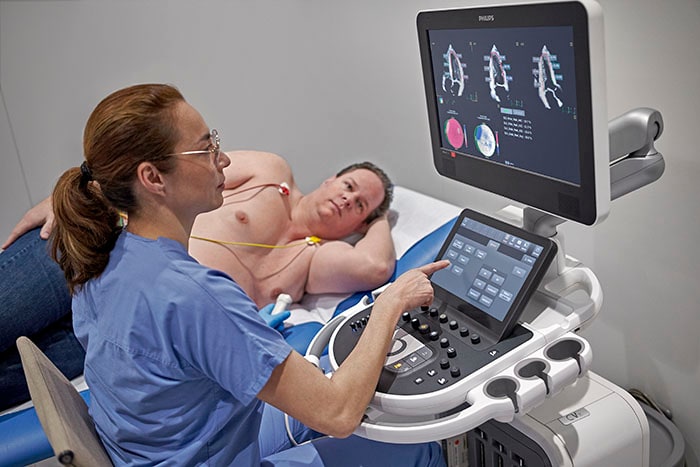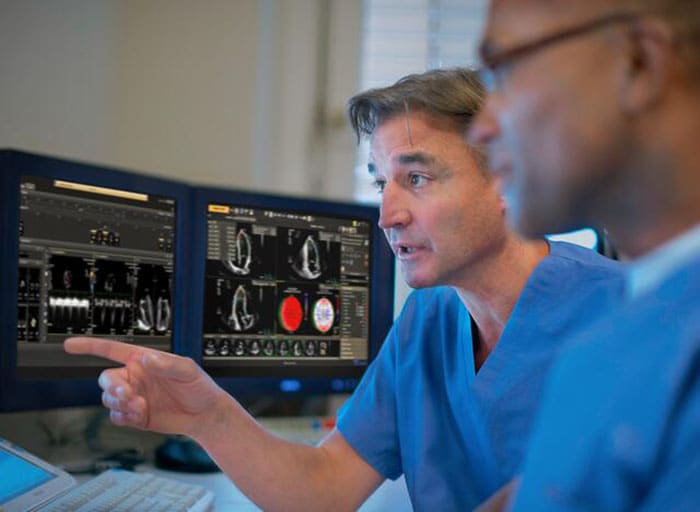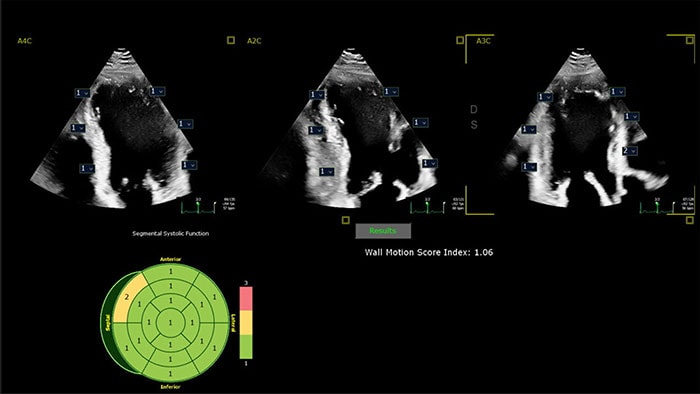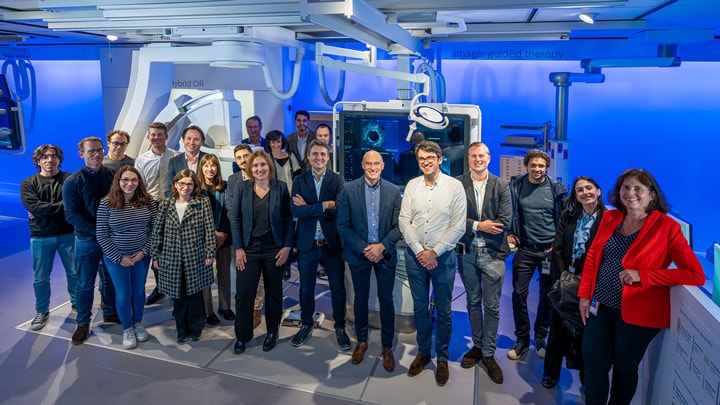Following the recent European Society of Cardiology (ESC) Congress in Barcelona, Spain last month, Philips announced the results of an expert panel study [1] demonstrating the clinical and operational benefits of the company’s cardiovascular ultrasound and informatics portfolio to support diagnostic confidence, clinical efficiency and improve patient and staff experiences. The study was conducted using the Delphi method [2] which is widely used in capturing expert opinions and establishing professional and clinical guidance and consensus for decisions on the diagnosis and treatment of patients.
While using the Philips integrated Philips cardiovascular ultrasound analysis and reporting system, 86% of the study respondents agreed it can help increase confidence in diagnosis decision-making and improve the staff experience by providing access to the necessary patient data [3]. Respondents (100%) also agreed the Philips echocardiography solution has led to increased report and measurement consistency and/or reproducibility, improved time to detection and diagnosis, and could benefit their overall clinical daily work [3].

Decision-making has been enhanced using Philips’ integrated echocardiography solution in any scenario that needs several measurements, and/or requires consistency and comparison with previous measurements. Examples include valvular heart disease, adult congenital disease, and cancer patients [4]. Philips’ integrated echocardiography solution also enhances clinicians’ ability to follow the recently released European Society of Cardiology (ESC) Cardiology-oncology Guidelines (ESC Guidelines - Cancer treatments & cardiovascular toxicity (2016 ESC Position Paper) (escardio.org)), highlighting the prominence of echocardiography and access to consistent and reproducible measurements demonstrating great benefit with cardio-oncology assessments.
Significant challenges in echocardiography – improving efficiency of echo labs and cardiovascular service lines; shortening report turnaround times; reducing the need for repeat exams; enabling cross organizational collaboration; and ensuring high confidence diagnoses for complex cases – are often exacerbated by poor access to historical imaging and non-imaging data for individual patients. By integrating its cardiac ultrasound systems (EPIQ CVx and Affiniti) with its Ultrasound Workspace visualization/analysis workstation and its image and information management solution, IntelliSpace Cardiovascular, Philips’ solution for echocardiology helps address these challenges.
With this integrated solution for echocardiography, we have combined the power of AI with deep clinical knowledge to create a solution that integrates into existing workflows to help drive efficient clinical decision-making.
Jeff Cohen
General Manager of Ultrasound at Philips
“Transformative change should not come at the expense of well-established clinical practices; it should be built on top of them to help clinicians focus on treating their patients. With this integrated solution for echocardiography, we have combined the power of AI with deep clinical knowledge to create a solution that integrates into existing workflows to help drive efficient clinical decision-making. Providing a workflow solution that care teams can easily adapt to their individual needs means our customers can now experience a whole new world of echocardiography to help improve both the patient and staff experience.” - Jeff Cohen, General Manager of Ultrasound at Philips

By combining high image quality with AI and advanced analysis tools accessible both on and off-cart, Philips’ integrated echocardiography solution enables flexible clinical workflows and easy access to web-based chronological patient data to support collaboration and drive confident decision-making, all while reducing report turnaround time and time to diagnosis. As a full, vendor neutral solution, it enables integration with existing ultrasound systems and hospital IT infrastructure, helping to scale and realize the value of echocardiography to expanded applications, such as the cardio-oncology.
The combination of components of Philips’ echocardiography solution to help drive clinical, operational and workflow benefits include:

Also during the recent European Society of Cardiology (ESC) Congress in Barcelona, Spain, Philips organized an expert speaker symposium to discuss the latest advances in echocardiography. To further promote the results of the Delphi study, Philips has also published a new position paper titled ‘Helping to advance and shape the future of echocardiology’, based on an extensive customer survey aimed at identifying the potential for integrated echocardiography solutions to bring about transformative change in diagnosis, workflows, and operations.
For more information on Philips’ integrated cardiology portfolio designed to help strengthen clinical confidence, build efficiency, and help improve cardiac care, visit Philips Cardiology.
[1] S. Boonyaratavej, F. Riccobene, F. Falahi, J. Franke, J. Solis, R. M. Lang. Assessment of benefits of Echo Workflow Solution: Findings from a two-step Delphi study, medRxiv 2022.06.01.22275807; doi: https://doi.org/10.1101/2022.06.01.22275807
[2] “Delphi” is a qualitative study methodology. The Delphi method requires subject matter experts to answer several rounds of in-depth interview questions to “forecast” future developments in their area of expertise.
Delphi Method | University of Phoenix Research Hub.
[3] Results from case studies are not predictive of results in other cases. Results in other cases may vary.
[4[ Assessment of benefits of Echo Workflow Solution: Findings from a two-step Delphi study : S. Boonyaratavej, F. Riccobene, F. Falahi, J. Franke, J. Solis, R. M. Lang, medRxiv 2022.06.01.22275807; doi: https://doi.org/10.1101/2022.06.01.22275807
Share on social media
Topics
Contact

Kathy O'Reilly
Philips Global Press Office Tel.: +1 978-221-8919
You are about to visit a Philips global content page
Continue












